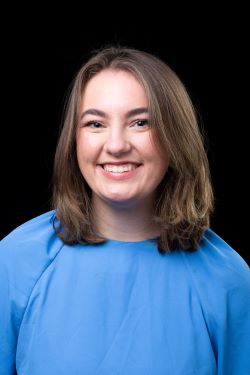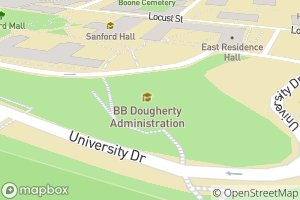Civic Literacy Initiative and the Civic Literacy Student Fellows

The Civic Literacy Initiative fosters a nonpartisan, civically engaged, and informed campus community. Through Student Affairs and Academic Affairs collaboration, we will help students examine complex questions and learn to discuss them with confidence and respect for differences in thought, belief, opinion, and background. With a strong commitment to student success, freedom of expression, institutional neutrality, academic freedom, and nondiscrimination, we support all students as they develop into leaders who can skillfully navigate complex conversations, increase democratic engagement, and build strong community ties through experiential learning. In doing so, the goal is to foster a university community that is welcoming to all and an academic culture of collaboration and respect.
The Office of Community-Engaged Leadership is excited to announce that in addition to the 11 volunteer members of our AppVotes Voter Coalition, we have hired 13 students to serve as Civic Literacy Fellows within the coalition!
The goal of the coalition is to increase civic literacy on campus every year through activities such as educational presentations, voter registration programs, and getting people to the polls. The Student Fellow role is a paid position that plays a crucial role in organizing and leading initiatives aimed at promoting civic literacy and engagement among App State students.
Please welcome our new fellows:
● Aidan Beauregard
● Nick Jackson
● Dillon Smart
● Ava Zellman
● May Currens
● Rian Mofu
● Isabella Lebron
● Jones Graf
● Abby Gonzalez Zavala
● Artie Bradley
● Andrew Myers
● Sofie Mascellino
● Hunter Messick
One of the main initiatives that the Civic Literacy Fellows will be working on this semester is our
Civic Literacy Presentations. With the election coming up, we have received a few questions
about updated voting laws and info that students (and all NC residents) will need to know.
CEL/AppVotes is a hub that students can always come to with questions about voting -
however, we know that we are not the only people who will get questions about these topics.
To help answer these questions and equip you with the information you'll need this Fall, we are
offering Civic Literacy Presentations for classrooms & groups/organizations! These
presentations range from 15-40 minutes, depending on which you select. To see all of the
options and to request a presentation, click here.






